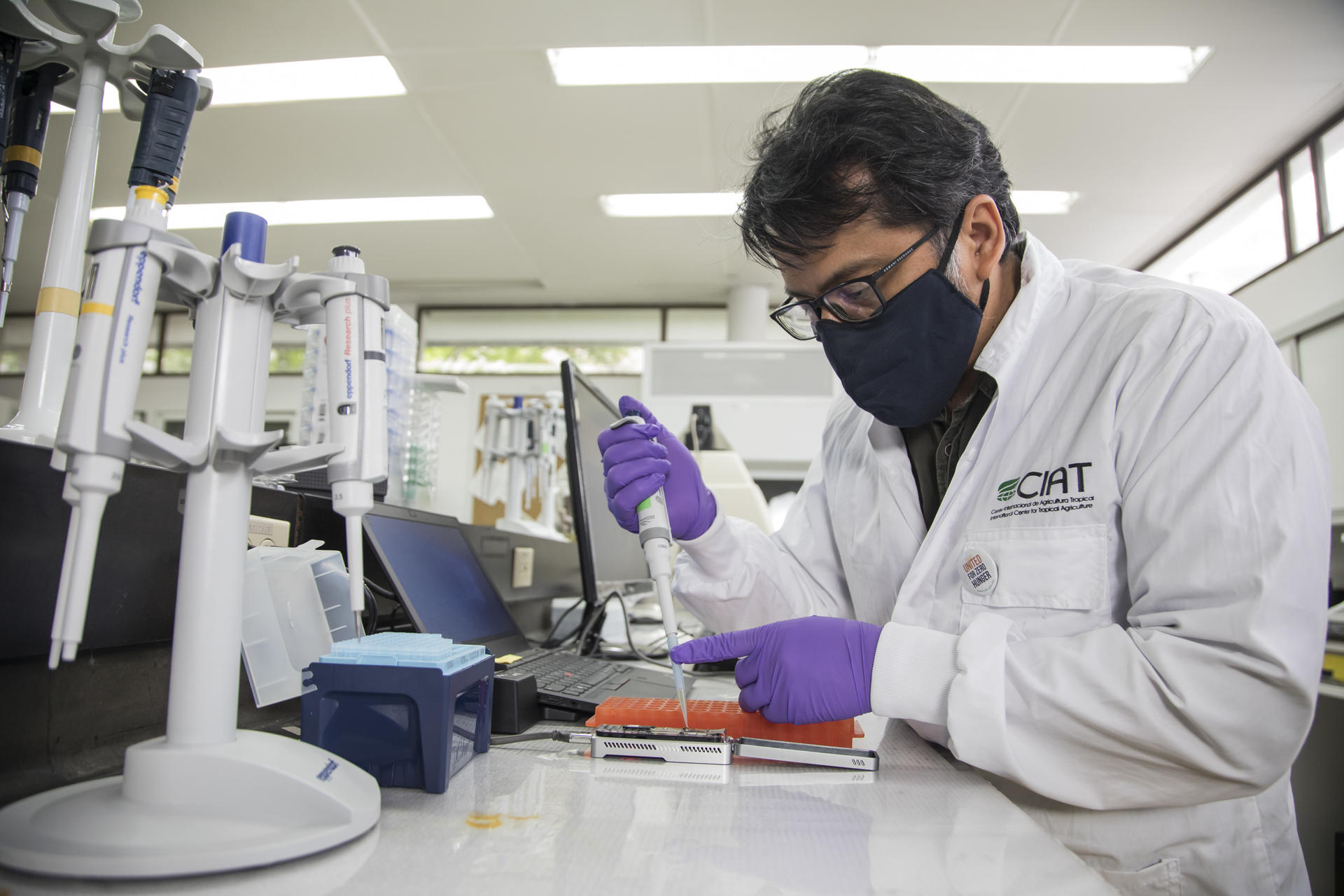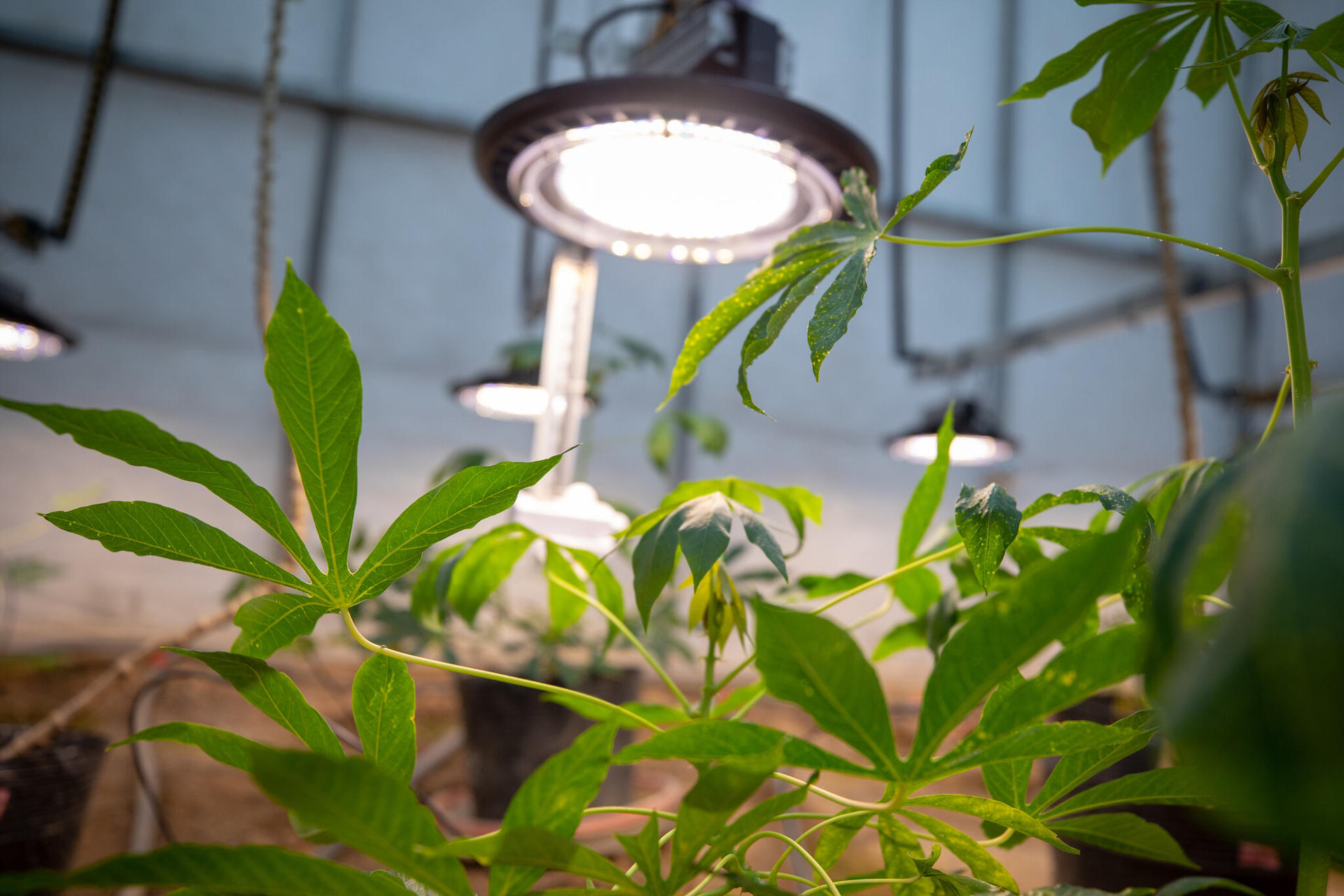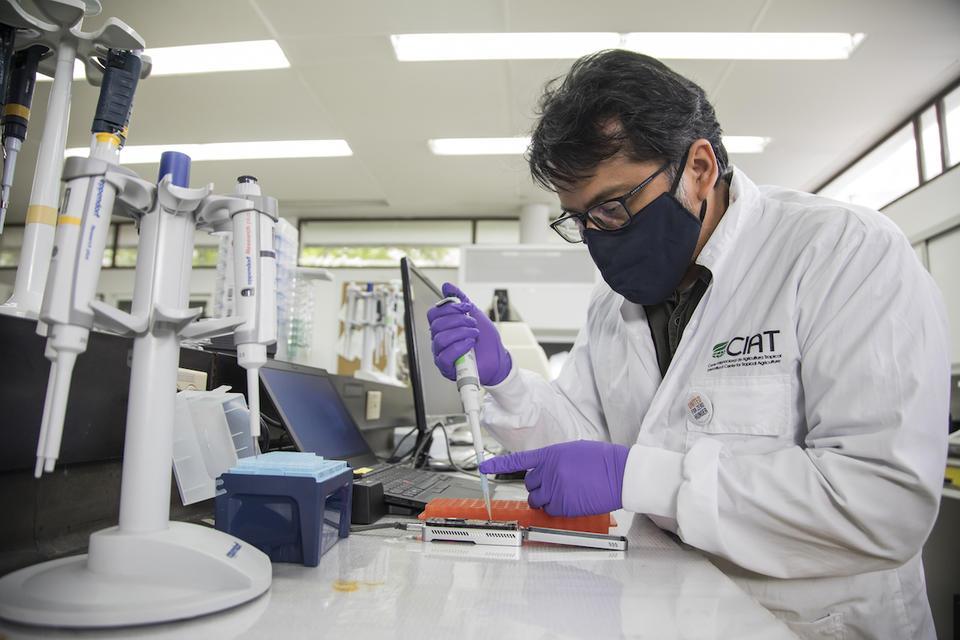2020 Annual Report COVID-19 brings new challenges to the Alliance virology lab

Our team collaborated to fight the pandemic in 2020 – all the while keeping our normal workload on schedule.
2020 was anything but normal. A deadly pandemic engulfed humanity, wreaked havoc on economies and made reaching global development targets harder than ever.
Many colleagues at the Alliance’s Virology Lab and Crop Protection Team in Colombia could not work from home. We adjusted to tight health protocols and navigated through lockdowns and other disruptions.
Yet the year was a success. We expanded our work on crop disease surveillance and helped keep research projects on schedule. Cassava disease vigilance is one example.
We also supported Colombia’s response to COVID-19.
This was a natural transition for us. Terms that are now familiar to anybody tracking the pandemic – asymptomatic infection, molecular testing and number of samples processed per day – have been part of our everyday language for years. Our lab, though focused on plant pathogens, employs the same techniques that are used to track COVID-19.
Our team sequenced one of Colombia’s first SARS-CoV-2 virus genomes and joined the national network to track virus variants. The government-supported network allowed us to train technicians and researchers in partner labs to track pathogen evolution.

Cassava grown at the Alliance lab in Vietnam. Credit: Trong Chinh
Plant virology research is accelerating
Early detection of crop diseases in the tropics can make a huge difference to rural livelihoods. We can identify a new pathogen, trace it to its origin, and communicate findings to policymakers, farmers and development partners. They can then take action to contain potentially devastating outbreaks.
This is challenging in the tropics. When compared to temperate regions, the tropics have exponentially more crop varieties and pathogens to monitor. Just like trees and birds, tropical pathogen diversity here is much higher.
We spend most of our time quietly toiling behind the scenes, but there’s nothing more satisfying than seeing our work deployed and utilized, including in the Alliance’s Cassava Mosaic Disease work and the PestDisPlace tool (which is popular with Cambodia’s president).
Over the last decade, I have witnessed an acceleration in results obtained from integrating new scientific disciplines, including nanotechnology, artificial intelligence, genomics and bioinformatics. With strong scientific leadership, these multidisciplinary teams obtain results we could have only once dreamed of.
Now that genetic innovations allow us to identify novel pathogens within several hours or accelerate the generation of a disease-resistant crop variety, plant pathologists can vastly scale up their results to help sustain livelihoods, food systems, human health and economic wellbeing.
Read more on:
Improving Crops

